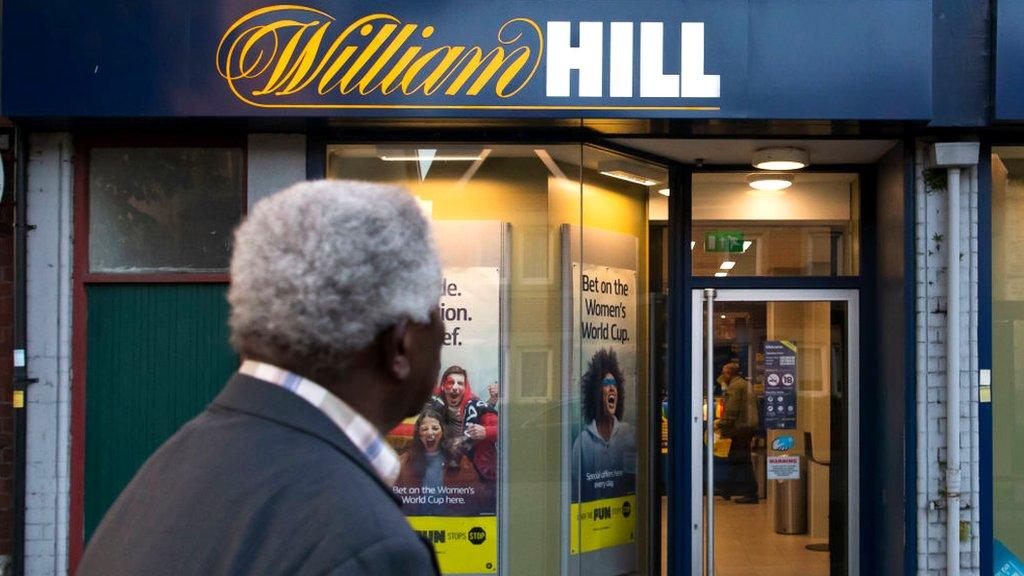Gambling laws 'could have saved our son's life'
- Published
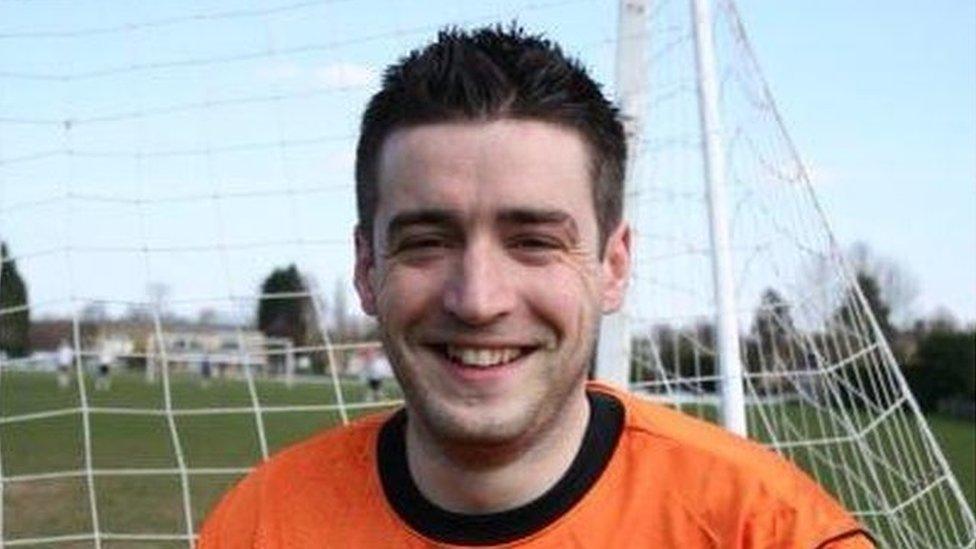
The parents of a County Fermanagh man who took his own life as a result of a gambling addiction say his life could have been saved if laws were stricter.
Peter and Sadie Keogh, from Enniskillen, are going to Stormont on Tuesday to call for greater regulation of the industry.
Lewis was 34 when he died by suicide in 2013. He was about £50,000 in debt.
"All he could see was a dark hole - he didn't know where to get help," his father told BBC News NI.
Had there been stricter gambling regulations, Mr Keogh says "you would have hoped there was a chance that he could have seen a way out of it".
They are calling for clearer health warnings about the dangers of gambling, a ban on aggressive marketing and specialist treatment services.
They also want an independent regulator such as Great Britain's Gambling Commission.
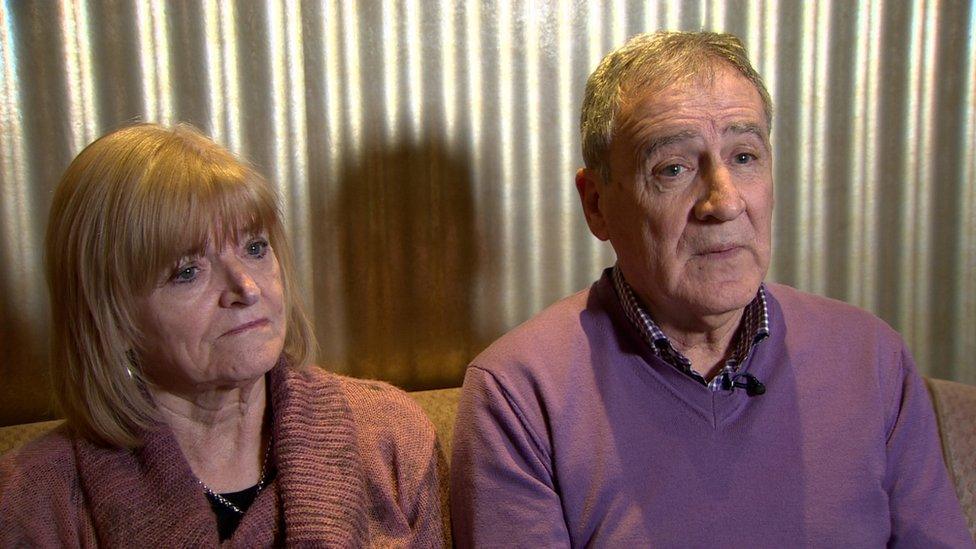
Peter and Sadie Keogh are calling for greater regulation of the industry
It is widely accepted Northern Ireland's gambling laws are out of date and a consultation is currently under way, external.
It is seeking views on various elements such as whether casinos should be permitted and if bookmakers should be allowed to open on Sundays.
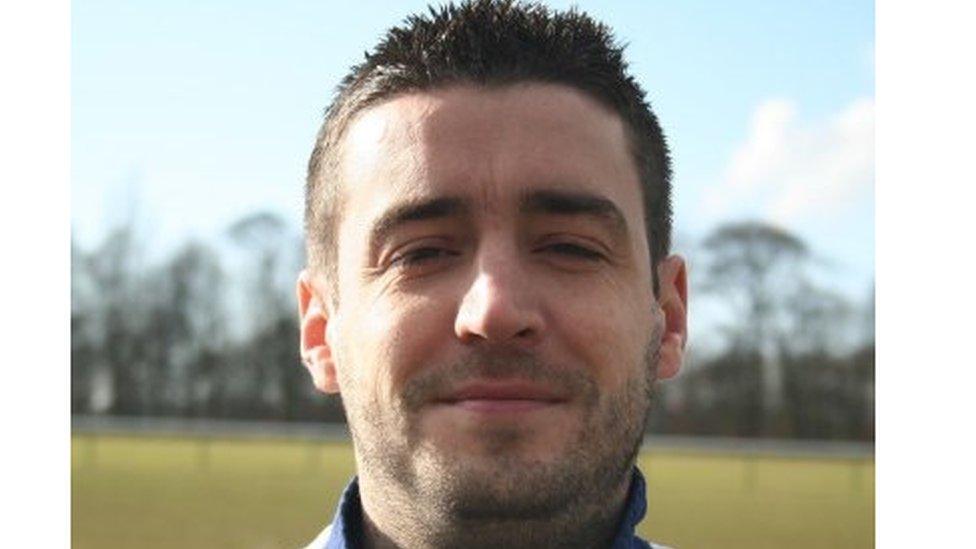
"We haven't had a change in our gambling laws since 1985 which is light years away, it's pre-internet," said Mr Keogh, whose son told them that his (mainly online) gambling addiction was "cruel".
"It has been updated in England and there are now specific clinics for gamblers and we need to step up to the mark."
Mr Keogh, 72, and his wife Sadie, 73, are involved with the Gambling with Lives group, set up by family and friends of those who took their own lives, to raise awareness of the dangers of gambling addiction.
An inquest into Lewis's death returned a verdict of death as a result of a gambling addiction.

What is the current state of play in NI?
The current laws - contained in the Betting, Gaming, Lotteries and Amusements (Northern Ireland) Order - date back to 1985.
Courts and councils license gambling activities, the Department for Communities is responsible for track betting licences and enforcement lies with the police.
There are more restrictions in Northern Ireland - for instance, casinos are not allowed, pubs and clubs cannot organise poker and other games for commercial purposes, and bookmakers and commercial bingo clubs are not allowed to open on Sundays, Christmas Day and Good Friday.
The 1985 order predates the development of the internet and therefore contains no provisions relating to online gambling, although NI consumers are offered protection through laws in Great Britain.
There are also no provisions requiring the gambling industry in NI to make any contribution to funding support services for problem gambling.
The Gambling Act 2005 modernised the law in GB.
It established an independent body, the Gambling Commission, to advise the government, control and regulate gambling, enforce the law and promote socially responsible gambling.

The most recent survey on gambling prevalence in Northern Ireland was conducted in 2016.
It suggested three out of four adults had taken part in some form of gambling within the past year - the most popular form was the National Lottery (46.8%), followed by raffles and ballots (20.6%), scratchcards (23.7%) and betting with a bookmaker (22.8%).
For those who had gambled in the previous year, the percentage of respondents gambling online (15.8%) had more than doubled since the last survey in 2010.
The survey also suggested there are about 40,000 problem gamblers in Northern Ireland - the highest rate in the UK per head of the population.
There are no gambling addiction-specific services offered by the health service in Northern Ireland.
The consultation on gambling regulation in Northern Ireland closes on Friday 21 February.
- Attribution
- Published11 January 2019
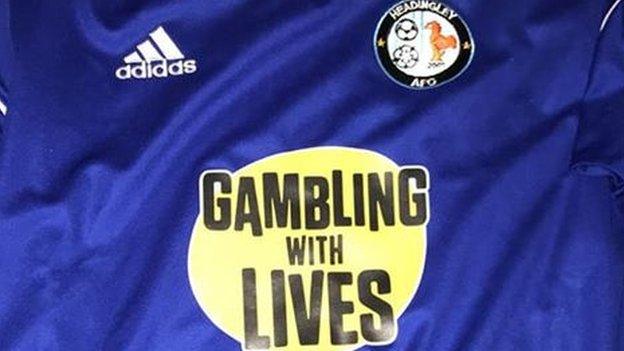
- Published6 February 2020
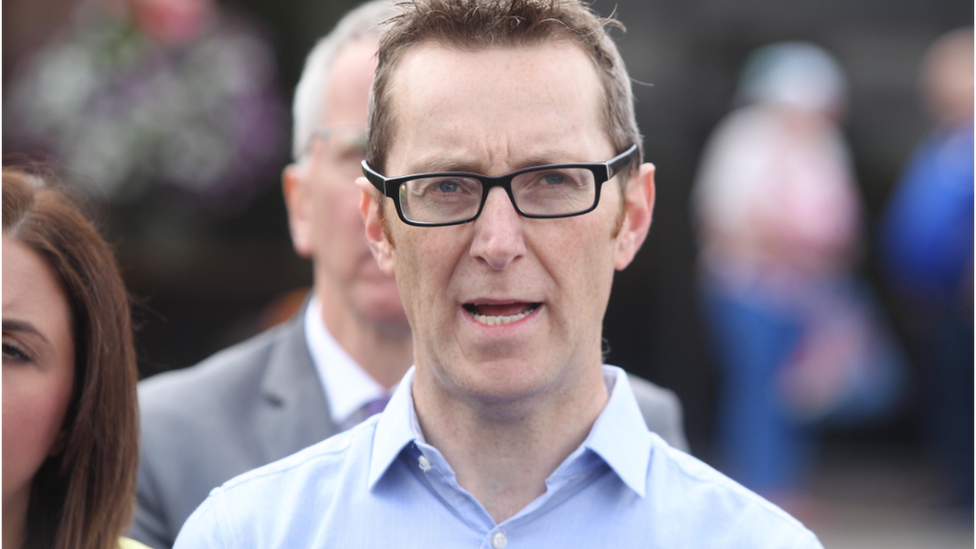
- Published23 January 2020
